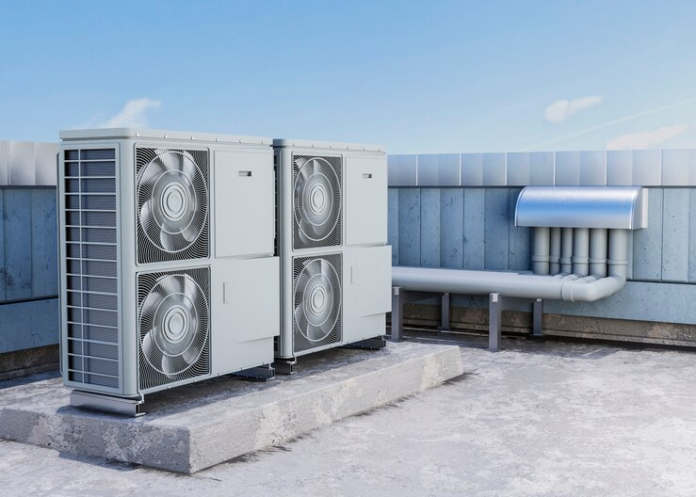Indoor rooms are kept cool in the summer and heated in the winter by HVAC systems. HVAC systems include air conditioning and heating units (AC units) and indoor air quality devices such as air purifiers. It also consists of smart thermostats and control systems that make everything function.
What does HVAC mean?
HVAC is an abbreviation for air conditioning, heating, and ventilation. An HVAC system is an entire home comfort system that may be utilized to improve indoor air quality and regulate temperature in your house.
The terms HVAC and AC are frequently used interchangeably, although HVAC refers to the more extensive system, which may or may not include an air conditioning unit, whereas AC only relates to air conditioning in isolation.
How does an HVAC system work?
The HVAC system aims to achieve ideal home comfort conditions by combining air conditioners, furnaces, air handlers, ductwork, thermostats, humidifiers, or air purifiers.
After selecting and installing the right HVAC system, your thermostat controls the temperature, distributed through ductwork, an air handler, or refrigerant lines in ductless systems.
Gas or electricity can be used to power HVAC systems. However, most modern systems are powered by electricity. Furnaces are the primary exception, often driven by either gas or oil.
How Are Air Conditioning and HVAC Different?
HVAC and air conditioning are often used interchangeably but are distinct concepts. HVAC systems regulate temperature and ventilation, while air conditioners only cool buildings. Central air conditioners are separate from HVAC systems.
It is the best option hvac services morehead nc, if you live in North Carolina and want to access HVAC services online. They offer residential, commercial, and industrial clients alike. They can install heating and cooling systems and provide electrical work for installation and repair.
Types of HVAC Systems
Choose from various HVAC systems based on heating and cooling needs, location, age, and ductwork. Your HVAC technician can assist in selecting the best system for your home.
Here are the types of HVAC systems available and how they work to help guide your search:
Split System
A split system, often called a forced-air system, consists of an exterior and inside unit. An air handler and heat pump, a furnace and heat pump, or an air handler and air conditioner can make up this configuration. Your location will determine which configuration works best for your house. For instance, icy locations are ideal for the furnace and heat pump combination.
Hybrid Heat Pump System
In this instance, a furnace and an electric heat pump are part of the central heating system. The heat pump provides warmth for the house during the gentler seasons, such as spring and fall. The furnace kicks in when the temperature decreases too much for a heat pump to function well. This hybrid system, sometimes called a dual-fuel system, is more cost-effective than a furnace since it uses a heat pump instead of a stove to heat the house.
Ductless Mini-Split System
Ductless mini-split systems, designed for small spaces like garages and workshops, consist of an exterior unit housing a compressor and condenser and an indoor air handler, making them easy for homeowners to install.
Ducted Mini-Split System
A ducted mini-split system transfers air from an exterior compressor and condenser into a room using tubes rather than more giant ducts. Homes with limited space for conventional ductwork are best suited for this method. Better air circulation is one benefit of ducted mini-split systems over ductless ones.
Packaged System
All of the components of a split system are present in a packed system, but they are all housed outside. Homes without enough interior room for a heating unit benefit most from this. Even so, since a packaged system only requires one unit to install and is quieter due to its outdoor location, it may still be worth considering if you have room for a split system.
How do you use a generator in the home?
An extension cord or appliance can be plugged into a portable home generator. Connecting the portable generator to your home’s electrical system is the alternative. To accomplish this, you must install a transfer switch close to your breaker box. An electrician with the necessary license should handle this.
If you live in Davie, FL, searching for a reliable company that satisfies your power requirements. Do not hesitate to access residential generator service davie fl.

